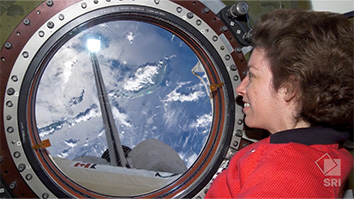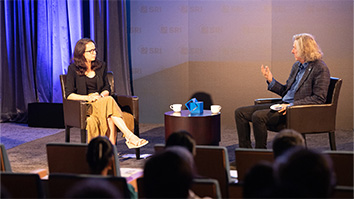Information and Computing Sciences
SRI’s Information and Computing Sciences division is taking on some of the world’s most important challenges, creating leading-edge technology solutions that have revolutionary impact.
Our researchers are redefining the way human beings interact with machines and with one another through machines, as we define what’s next in artificial intelligence, machine learning, and computing for the real world.
-

Supun Samarasekera: The future of video analytics and AI for mixed reality applications
Supun Samarasekera, senior technical director for the Center for Vision Technologies, discusses the changing landscape of AI and video analytics for mixed reality applications.
-

Pat Lincoln: Improving our collective ability to solve problems
As the president of SRI’s Information and Computing Sciences division, Patrick Lincoln leads a team that creates forward-thinking technology solutions to our most important challenges.
-

Decades of cutting-edge research that matters
Supun Samarasekera has helped bring real-world mixed reality applications to our customers for almost 30 years.
-

Garrett Wang: Making AI building accessible to all
The CEO and co-founder of Cerbrec works with SRI to simplify AI for a range of industries.
-

Wes Madrigal: Streamlining the AI data pipeline
SRI spins out Kurve to help customers automate AI to speed up business operations.






